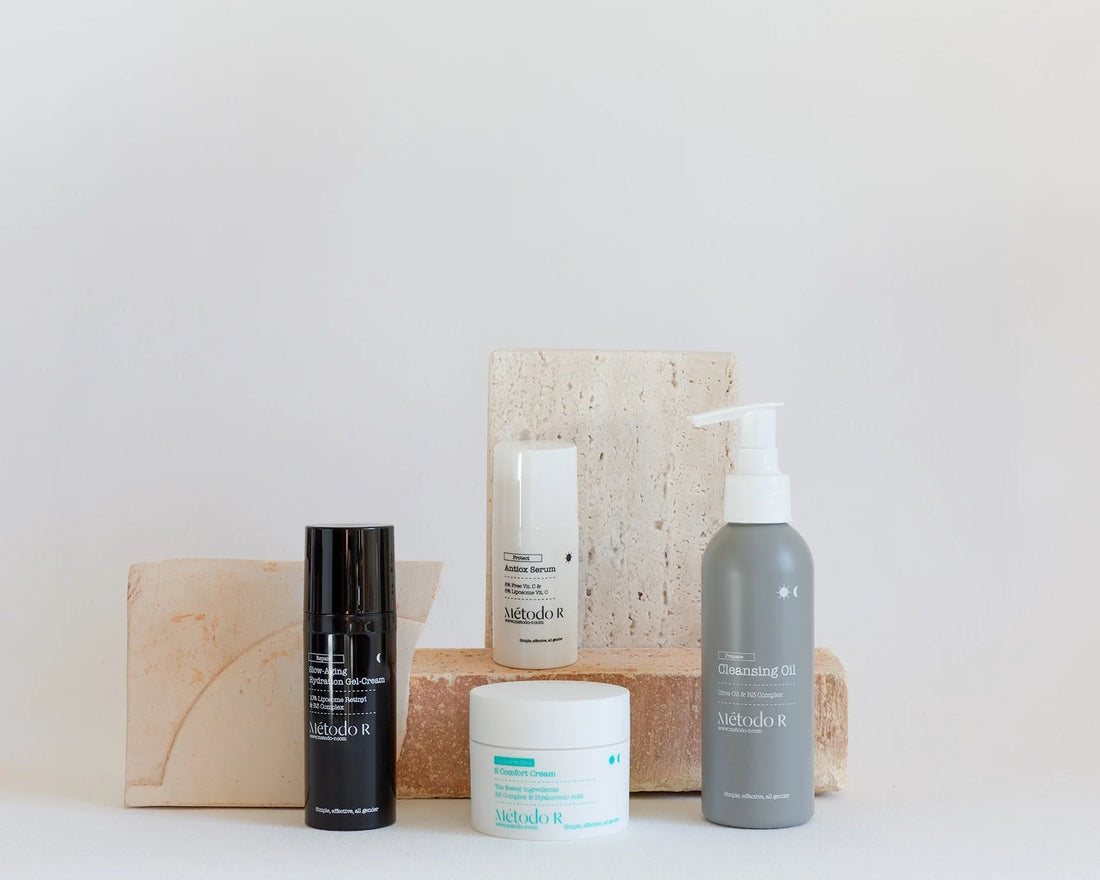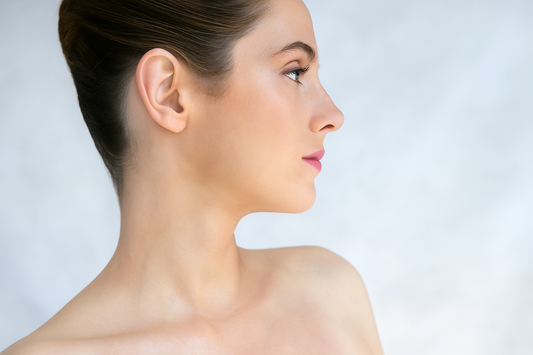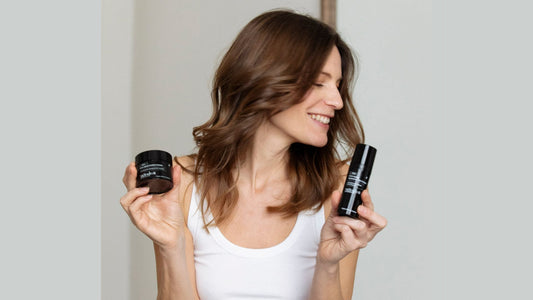We have lost the battle against aging since we were born. It is a natural process, unstoppable and I dare say desirable, but yes, at a snail's pace. And let anyone over 40 who hasn't looked in the mirror and thought that this is going too fast cast the first stone.
Our current lifestyle is very damaging to our skin. Poor diet, alcohol, tobacco, stress, pollution, radiation, air conditioning and heating, etc., are factors that accelerate the cellular oxidation process and cause premature aging. But,
What keeps skin young and healthy?
To counteract these factors, which in some cases are inevitable, these are our tips, starting with taking care of ourselves internally, avoiding global aging and ending with specific skin care.
-
Maintain a healthy diet: A balanced diet rich in antioxidants can help prevent cell damage and reduce premature aging. Diet is also key to avoiding oxidative damage in all the organs of our body. The variety of foods from the plant world that contain antioxidants is so wide that if you decide to include many vegetables of all colors in your diet, we assure you that you will be ingesting enough antioxidants. Avoid processed foods at all costs.
-
Do not smoke: Tobacco produces free radicals that damage collagen and elastin in the skin, causing wrinkles and other signs of premature aging. We all know that the harmful effects of tobacco also affect our entire body and accelerate aging in general.
-
Reduces stress: Stress can cause your skin to age faster. Try to reduce stress in your life by practicing yoga, meditation, playing sports, walking, maintaining a healthy social life or simply taking time to relax. I think that in the world we live in, this is the most difficult factor to control. But you have to try.
-
Do sports: There are multiple benefits of sport for the skin and health in general. It reduces stress, improves sleep, eliminates toxins and increases blood flow, which gives instant luminosity to your skin. Additionally, sport reduces stress hormones and increases the production of endorphins. Both have a positive impact on the appearance of our skin.
-
Sleep enough: Lack of sleep can have a negative impact on the health of our skin and our entire body. When you don't get enough sleep, the body produces more cortisol, the stress hormone. Excess cortisol can cause inflammatory processes, which accelerate aging. Additionally, lack of sleep can also decrease the production of collagen and elastin, the proteins that keep skin firm and elastic, which we know causes the appearance of wrinkles and sagging. It is undoubtedly important to get enough sleep to maintain health and healthy, young skin.
-
Protect your skin from the sun: Sun exposure is one of the main causes of premature skin aging. And fortunately against which we can act. Use sunscreen, which will also protect your skin from pollution. Seek shade and also add other photoprotection methods in summer such as hats and clothing to protect yourself.
-
Maintain a skin care routine: Cleanse your skin daily and exfoliate regularly to remove dead skin cells. Moisturize your skin in the morning and at night with a moisturizer suitable for your skin type. Remember that hydrated skin will be more protected against external agents.
-
Use cosmetic products that prevent and reduce signs of aging: Look for products that contain ingredients like retinoids, hyaluronic acid, and antioxidants, which can help prevent and reduce wrinkles.
-
Do your skin checks: In the same way that we go to other doctors periodically, we should go for a dermatological check-up every year and have the dermatologist prescribe treatments to keep our skin healthy. Cosmetics are an excellent maintenance treatment but there are many others that act where cosmetics cannot reach.
- Take advantage of medical advances: Let no one say that taking care of our skin is frivolous. The skin is an organ as important as the heart or liver. And we must take care of it and maintain the fullness of its functions. Healthy skin is skin with elasticity, without spots and luminous. And if to achieve this you have to use aesthetic dermatology techniques, they are welcome!
I hope these tips help you and encourage you to maintain healthy and young skin. Remember that it is important to take care of your skin both inside and out and that the goal is to lead a full life, feeling good at every stage, with the feeling that we have fought to maintain the best version of ourselves and also of our skin. in every moment.
The skin connects us to the world and is a fascinating organ that deserves all our attention. The appearance of our skin can have a significant impact on how we feel emotionally. When we have beautiful, healthy skin, we feel more confident in ourselves and able to face the challenges of everyday life. On the other hand, when we have skin problems or simply look tired when we really aren't, it influences how we feel and how we relate to others.
Additionally, skin is one of the first things we notice when we look at someone and what we see when we look in the mirror. Therefore, beautiful, radiant skin can make us feel more confident in our social interactions. There is also a biological component to how the appearance of skin makes us feel. The skin has nerve cells that send signals to the brain to release endorphins, which can make us feel happy and relaxed. Through the skin we feel touch, cold, heat or pain and we express emotions, we turn red, pale or sweat when we get angry or feel a strong emotion. Emotions can also trigger pathologies such as acne, dermatitis, psoriasis or vitiligo.
In short, beautiful, healthy skin can have a significant impact on how we feel emotionally and vice-versa. It makes us feel more confident, attractive and protected, and can trigger the release of endorphins in the brain, which can make us feel happier and more relaxed. Therefore, taking care of our skin is important not only for aesthetic reasons, but also for our emotional health and general well-being.
And remember that the best cosmetic trick is a wide smile. Happiness and self-confidence are the most attractive things in a person.




